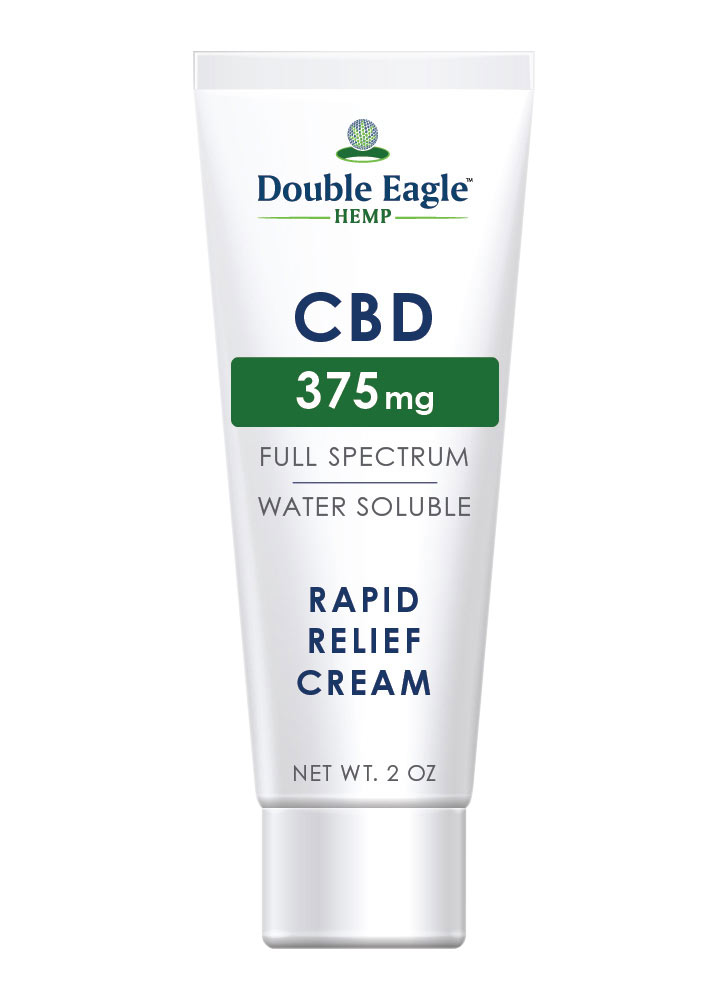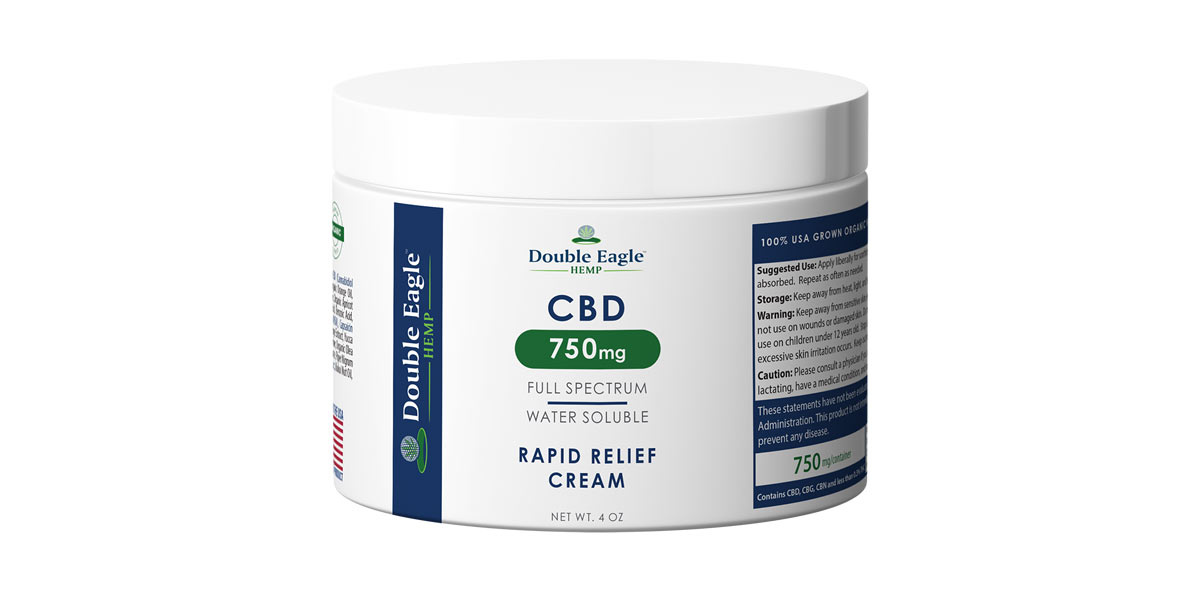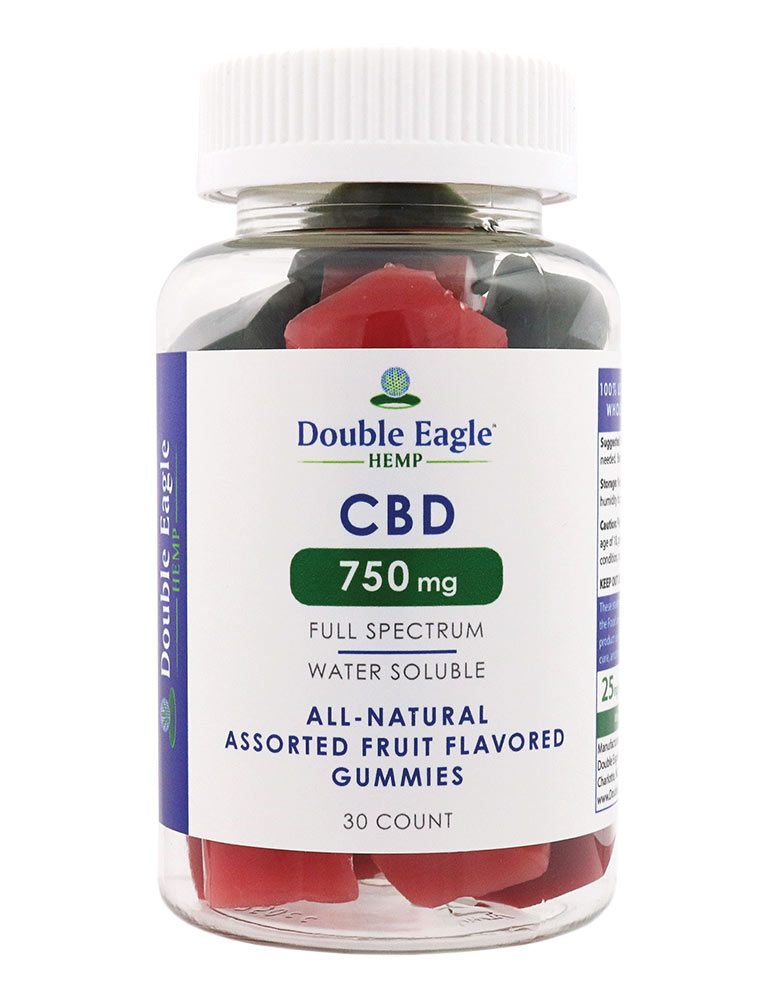
It won’t cure baldness if you rub it on your head, it won’t extend your car’s warranty by 20,000 miles, and it won’t get you “high.” What CBD can do, however, is worth investigating—as so many PGA Tour pros have done.
Calm down, focus, and read on…
CBD, MTV, BBC, MSG… If you keep up with sports news, you’ll have noticed “CBD” popping up in stories over the last year or so, including in stories about professional golfers. You might have heard that CBD is an oil, or a gum, or a sports cream, or a gummy bear or something else, and that some pros take it to help them focus or to help their putting or because they have arthritis or just because the other pros are taking it. All of the above might circle the truth, but none of that really explains what CBD does, exactly, or why anyone would want it. In hopes of adding some clarity to the conversation, here’s a look at the latest acronym to take the sports world by storm.*
To dispel a few myths you might have heard: CBD (short for cannabidiol) in and of itself will not get you “high,” it is not the same as marijuana, and there’s no research currently to indicate that it is inherently unsafe. Also, according to a report from the World Health Organization quoted in a story by Dr. Peter Grinspoon on Harvard Medical School’s website: “In humans, CBD exhibits no effects indicative of any abuse or dependence potential… To date, there is no evidence of public health related problems associated with the use of pure CBD.”
“OK,” you might be thinking. “So what does it do?”
Let’s start with what it won’t do: It will not fix every problem in your life, give you the ability to leap over tall buildings in a single bound or knock 10 strokes off your golf score. To see the way some supposed CBD products are advertised, it’s understandable if this wasn’t clear to you. Its actual effects have been studied for decades by researchers in Israel, Spain and the UK (among others) and its primary medical application has been in the treatment of childhood epilepsy, with proven effectiveness. Its ability to reduce or to eliminate seizures there may be related to why it is commonly used to treat muscle pain and to help with muscle recovery following workouts or exertion (primarily due to its ability to inhibit spasms, it is believed). Beyond that, CBD is commonly used to address insomnia, anxiety and various types of chronic pain. A study from the European Journal of Pain showed that, in an animal model, CBD applied on the skin could help with inflammation and pain due to arthritis, while other studies have suggested it can treat a wide variety of pain in humans. It also seems CBD could be effective in managing anxiety, ultimately helping to effect a calmer state of mind and thus help with outlook and focus, both critical to success in golf. While science works on gathering the data, scores of golfers are using CBD now and touting its benefits—and those include many in the pro ranks.
Scott McCarron is a fan, telling ESPN and others that CBD made a big improvement in the quality of his sleep and that many of his fellow PGA TOUR Champions players use it regularly. A 2019 piece on ESPN.com identified McCarron, David Toms, Vaughn Taylor, DJ Trahan, Kenny Perry, Tom Kite and Scott Piercy as fans, among others. Bubba Watson is one of the more outspoken fans of CBD and even entered into a sponsorship agreement with a CBD company last year, although McCarron technically was the first to partner with a firm, Functional Remedies. In accordance with CBD’s believed benefits, pros variously report improved sleep, fewer aches and pains, better focus and outlook and overall generally improved performance on and off course.

So people like it and it appears to have benefits, but how does it work, you might wonder. To understand that, let’s start with the plant from whence it comes: cannabis.
There are three species of cannabis plants, all of which hold numerous cannabinoids, including CBD and THC (tetrahydrocannabinol, associated with the “high” from marijuana). Marijuana is a version of the cannabis sativa plant, as is hemp, and while both contain both THC and CBD, hemp plants contain a far higher concentration of CBD relative to THC. Cannabinoids, including CBD, are diverse chemical compounds that interact with the body’s endocannabinoid system. The endocannabinoid system (ECS), according to UCLA Health, maintains bodily homeostasis—biological harmony in response to changes in the environment. The ECS is frequently explained as the traffic signals that regulate the flow of information within our nervous system and organs. If the traffic signals are functioning properly, information is flowing freely, organs are functioning well and everything is as it should be. If even one signal is mis-firing, traffic will continue to flow but not optimally, hence anxiety, spasms, and so on. From this oversimplified explanation it’s easy to see how individual cannabinoids could be credited with having a wide range of effects, and so they do, linking with receptors in our nervous systems and organs and affecting “traffic,” as it were.
CBD helps to keep things moving along—without the psychotropic effects associated with marijuana. Because what’s currently sold as CBD most likely has been derived from hemp, some firms go so far as to define themselves as “hemp oil companies” as opposed to CBD producers, and technically this is more accurate.

One such firm is Functional Remedies, the company favored by McCarron. Among the highest-quality producers of full-spectrum hemp oil, Functional Remedies offers a full range of ingestibles and topicals to suit a variety of needs. These include oil tinctures and capsules, creams and more.
“For a golfer past his 20s or 30s who wants to be able to move like they used to move, this is something that helps,” says Andrew Campbell, Functional Remedies CEO. Campbell points to McCarron and others as evidence that its products help with pain management and focus (“because the noise of anxiety decreases”) and explains that it’s Functional Remedies’ commitment to purity and quality that ensures effectiveness. As he points out, many products that purport to contain CBD do not, in fact, contain very much at all or contain impurities you would not want to ingest. A CBS News report in September of 2019 backs this up, and for Double Eagle Hemp, another company dedicated to offering quality full-spectrum organic hemp-derived CBD products to golfers, the false marketing and “snake oil” products in the market have created a kind of secondary audience for their products (doubleeaglehemp.com).

“There are people who’ve tried something that didn’t work,” says Alex Sadusky, Double Eagle co-founder, “and then they try our products, have a different result, and then become dedicated fans.” Double Eagle Hemp offers a range of products containing proprietary formulations, including oils, creams, gummies and even an athletic performance drink mix. “You can blend it beautifully into any beverage,” Sadusky says. “We wanted to offer a product that could be added to juice or anything, for people who didn’t want to put a true oil directly into their mouth.”
Both Functional Remedies and Double Eagle Hemp voluntarily adhere to top standards in sourcing and creating products, putting them in the top tier of a burgeoning market. For the moment there are no government guidelines on CBD—its legality is contained within a 2018 Farm Bill that legalized hemp, but the government has a lot of catching up to do when it comes to regulating the cannabinoid. Until guidelines are established, consumers will have to rely on the integrity of the producers themselves, those dedicated to “doing it right.” In a suddenly crowded marketplace, choosing which hemp oil-derived CBD product you want to try can be as confusing as understanding why you’d want to try it in the first place, but if many tour pros and other athletes are any indication, CBD might be right for you, on and off course. (doubleeaglehemp.com)
*Please note that nothing in this article constitutes medical or legal advice; as always, consult your health care provider before making any changes to your diet or health regimen.
Follow Us On


| Cookie | Duration | Description |
|---|---|---|
| cookielawinfo-checkbox-analytics | 11 months | This cookie is set by GDPR Cookie Consent plugin. The cookie is used to store the user consent for the cookies in the category "Analytics". |
| cookielawinfo-checkbox-functional | 11 months | The cookie is set by GDPR cookie consent to record the user consent for the cookies in the category "Functional". |
| cookielawinfo-checkbox-necessary | 11 months | This cookie is set by GDPR Cookie Consent plugin. The cookies is used to store the user consent for the cookies in the category "Necessary". |
| cookielawinfo-checkbox-others | 11 months | This cookie is set by GDPR Cookie Consent plugin. The cookie is used to store the user consent for the cookies in the category "Other. |
| cookielawinfo-checkbox-performance | 11 months | This cookie is set by GDPR Cookie Consent plugin. The cookie is used to store the user consent for the cookies in the category "Performance". |
| viewed_cookie_policy | 11 months | The cookie is set by the GDPR Cookie Consent plugin and is used to store whether or not user has consented to the use of cookies. It does not store any personal data. |